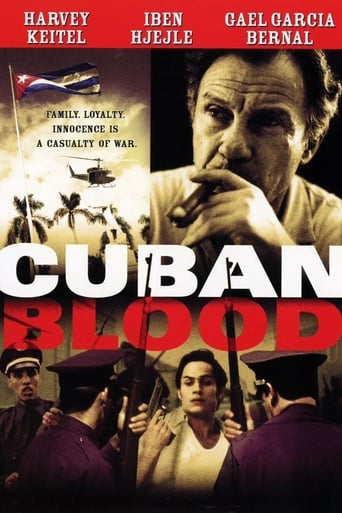marcosthecuban
Cheers to Letvia and Juan for the care taken to depict Holguin,Cuba of 1958. It is quite a thrill to see the incredible city of Holguin in a movie. The city, perhaps 100,000 strong in 1958, has grown substantially since then. Today, you can still fly direct to Holguin from Miami. Well , maybe not you but I can. :)Armin and Tete, characters in this story, are my aunt and uncle and, yes, they were in Holguin in 1958 the year i was born (in Holguin). Armin and Tete are alive and well and living in Hialeah, Florida.
[email protected]. 11/21/2012 http://www.imdb.com/name/nm5020153/


